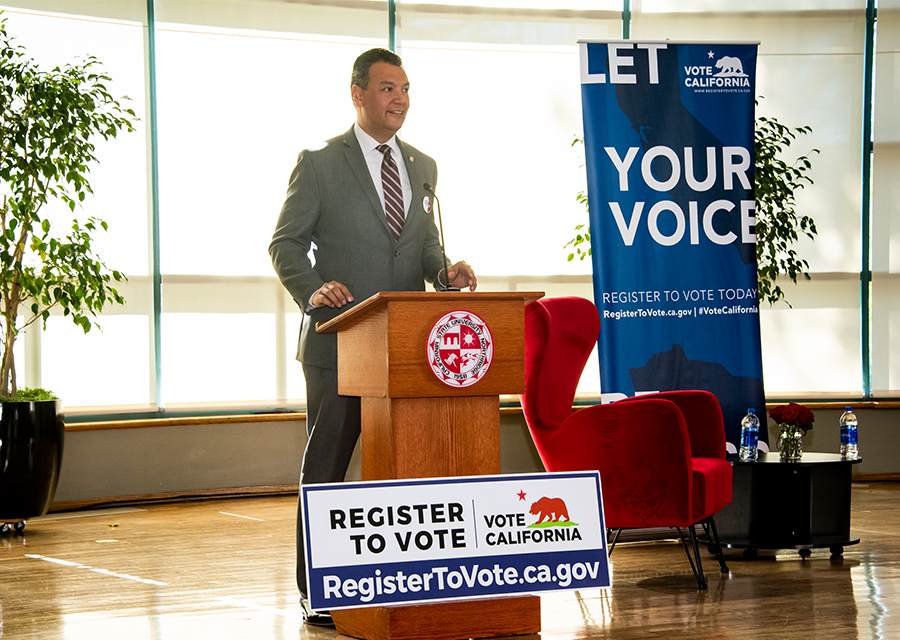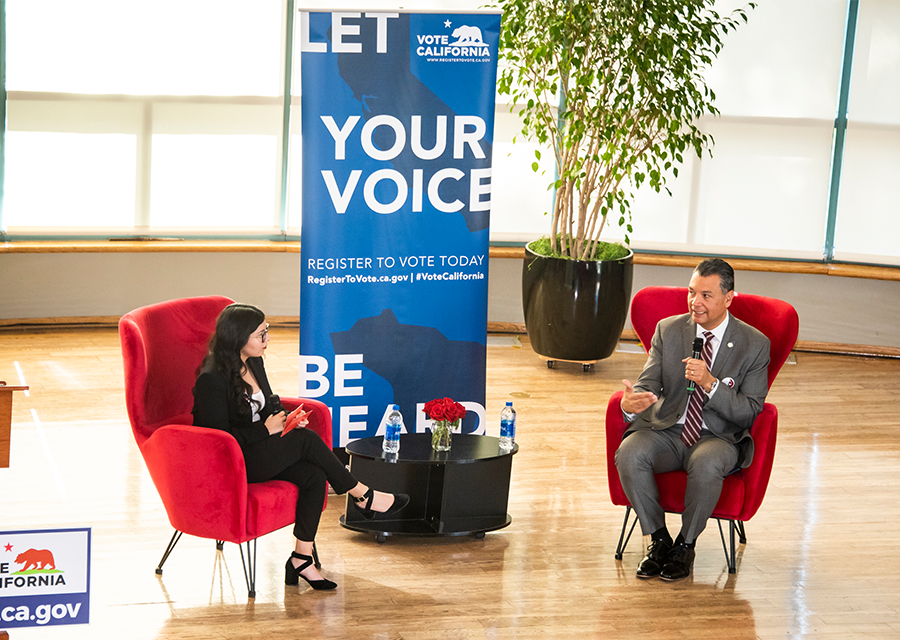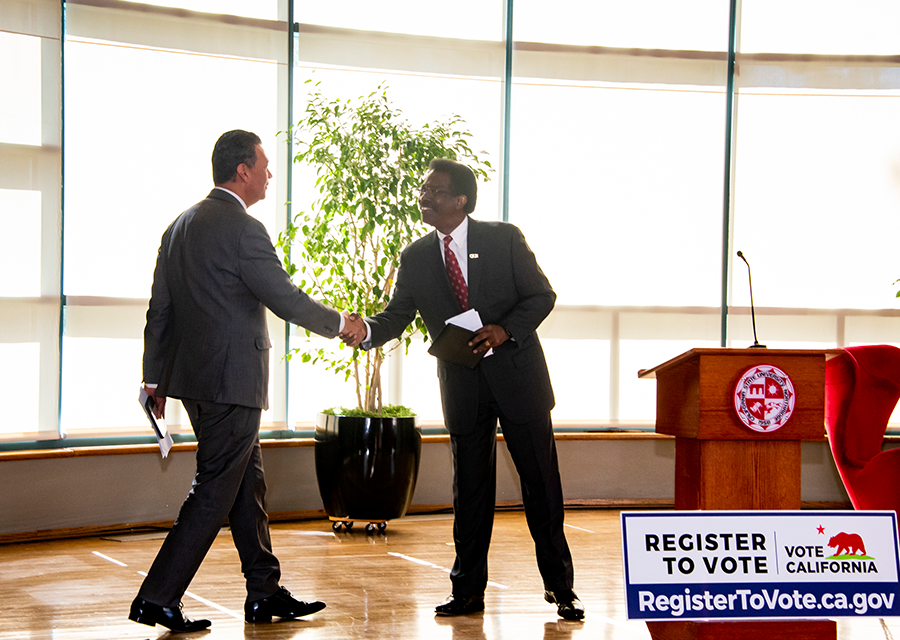CA Secretary of State Tells Matadors: ‘Don’t Forget to Vote!’
March 3, Presidential Primary Election Day in California, is fast approaching — are Matadors ready to cast their ballots?
To prime that pump, CSUN Associated Students (AS) and the Office of Government and Community Relations invited California Secretary of State Alex Padilla to campus Jan. 29, to answer questions students and faculty have about voter registration and the upcoming elections.
Padilla is a San Fernando Valley native and the first Latino to serve as secretary of state — as well as a proud brother of a CSUN alumna and father of two CSUN Child and Family Studies Center (a preschool on campus, also known as the CSUN Lab School) graduates, he said.
To the CSUN audience in the University Student Union Grand Salon, Padilla spoke about the importance of voting — especially among younger citizens.
“Millennials and Gen Z are the biggest voting bloc in America. That’s a lot of power right there — more than baby boomers,” he said. “But it’s power that’s not being seized, because it’s young people that register at lower rates and vote at lower rates.”
This year, California has bumped up its Presidential Primary Election Day to March — in previous years, the primary took place in June — which means the time to vote is coming sooner than some may think.
Also in attendance at the event were Padilla’s staff, CSUN administrators and other elected officials. After Padilla’s opening remarks, AS Chair of Legislative Affairs Leslie Aguirre moderated a Q&A session. She asked Padilla a set of prepared questions curated by AS, and then opened the floor for additional queries from the attendees.
Students asked about Padilla’s thoughts on engaging with students entering college earlier — and lowering the voting age to 17 — what his office is doing to give the homeless population a voice, and matters of election security.
Every eligible citizen should have the right to vote, Padilla said, “regardless of your housing situation or circumstances.” Individuals experiencing homelessness can exercise their right, too, he said, as Californians can register and vote even without a permanent address. He also mentioned that individuals who are unhoused will be counted in the 2020 census, which will take place April 1.
Padilla said that while the state government is still in conversation about lowering the voter age, he encourages 16- and 17-year-old Californians to preregister. As soon as they turn 18, he said, they will be automatically registered and able to vote. There are nearly 500,000 preregistered in California, he said.
On election security, Padilla said that every voting system in every county in the state has to first be tested and certified to meet security standards — California has some of the most rigorous testing standards in the nation. Security risks associated with voting technology, such as hacking, are also combated by the use of paper ballots. California prohibits vote center and other voting systems from being connected to the internet, he said, and the state requires counties to manually recount a percentage of ballots by hand to check against machine numbers and ensure accuracy in the vote count.
Padilla also urged citizens to be critical of what they read in the news and social media, to prevent misinformation from impacting their votes. Official sources of information, where voters should be checking their facts, he said, are available from government offices and official campaign pages. Hoaxes can also be reported to the administrators of platforms such as Twitter and Facebook, or in an email to the California Secretary of State — for review and, in some cases, removal.
The secretary has been leading dedicated efforts to increase civic engagement since he took office in 2015. As secretary of state, he oversees the security and reliability of voting equipment, enforces election and campaign laws, and promotes voter rights and registration.
His office also has eased voter registration by lobbying for and implementing the state’s Voter’s Choice Act, enacted in 2016, which allows flexibility for voters to choose how they would like to cast their ballots. In 2018, Padilla also called for automatic voter districts, which automatically register eligible state voters when they renew their California driver’s license or state ID.
The biggest question of the session was: “Does our vote matter?”
To Padilla, the answer is clear: Yes.
“A sure way to have your voice not heard is if you don’t participate,” he said. “The more people are participating, the more inclusive our democracy is, and the more representative our elected officials are.”
This year, California will have more vote centers to make voting more convenient. It will be even more convenient for Matadors — a vote center will be located on campus, in Redwood Hall 180.
“We’re making it easy to register and giving you tons of options to be able to cast your ballot,” he added. “So, there’s really no excuse, folks.”
Padilla also noted that engagement in politics should not end on Election Day.
“It’s also important what happens between elections,” he said. “Don’t just engage [with] your candidates in the campaigns when you’re deciding how to vote. Hold them accountable: Show up at City Hall. Show up at the school board. Write letters, and write to congressmen. Tell them what your concerns are, what your issues are, what your questions are. Then, slowly but surely, you will see that change.
“And don’t forget to vote!”




 experience
experience